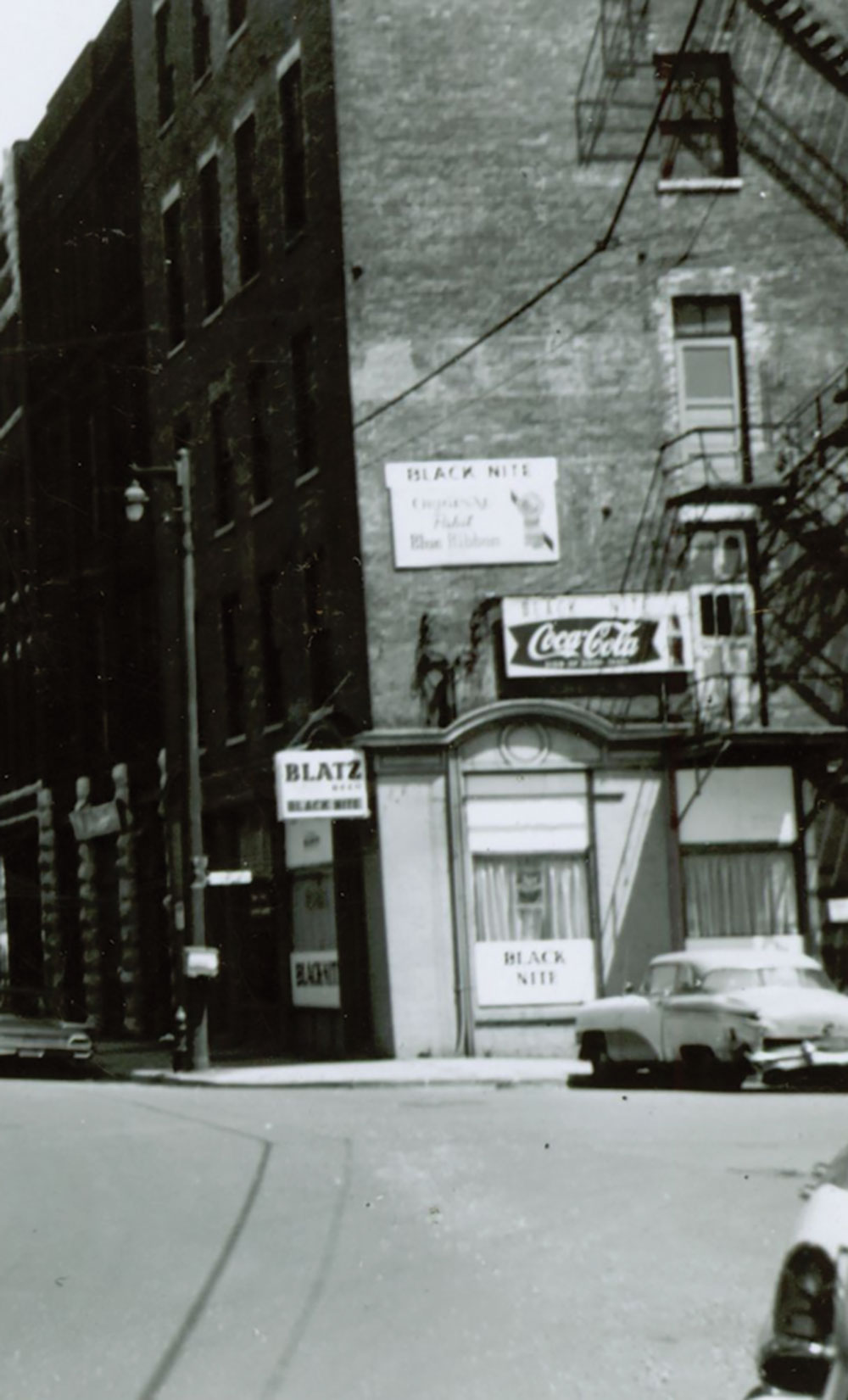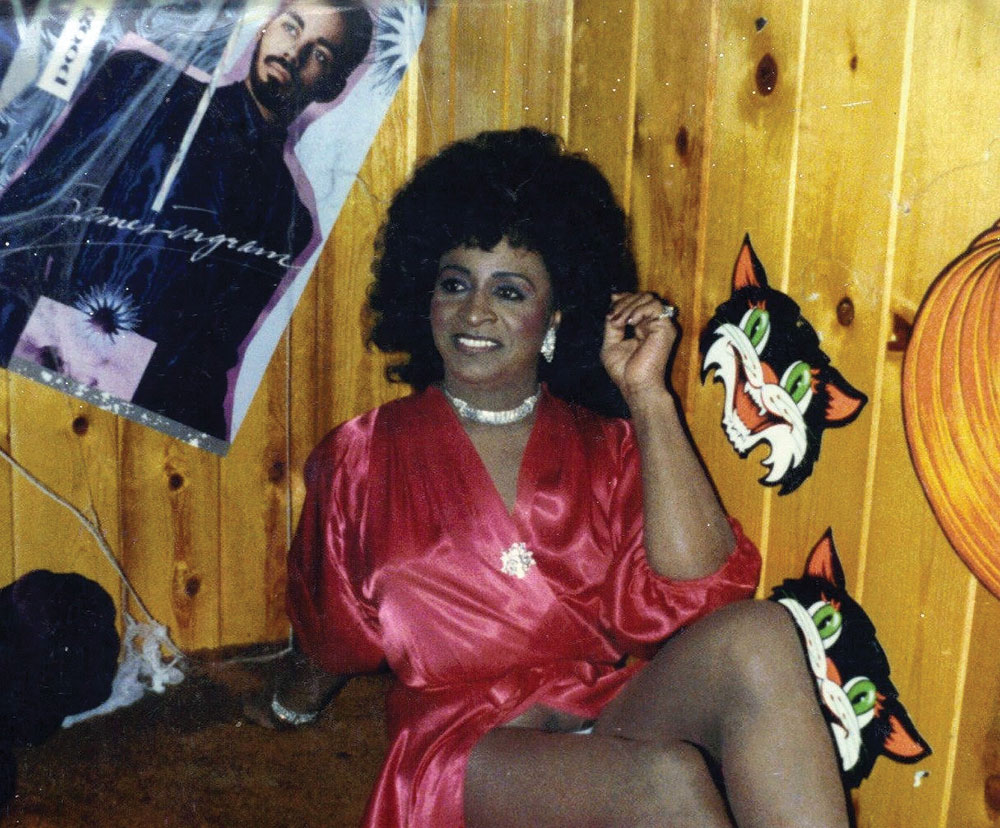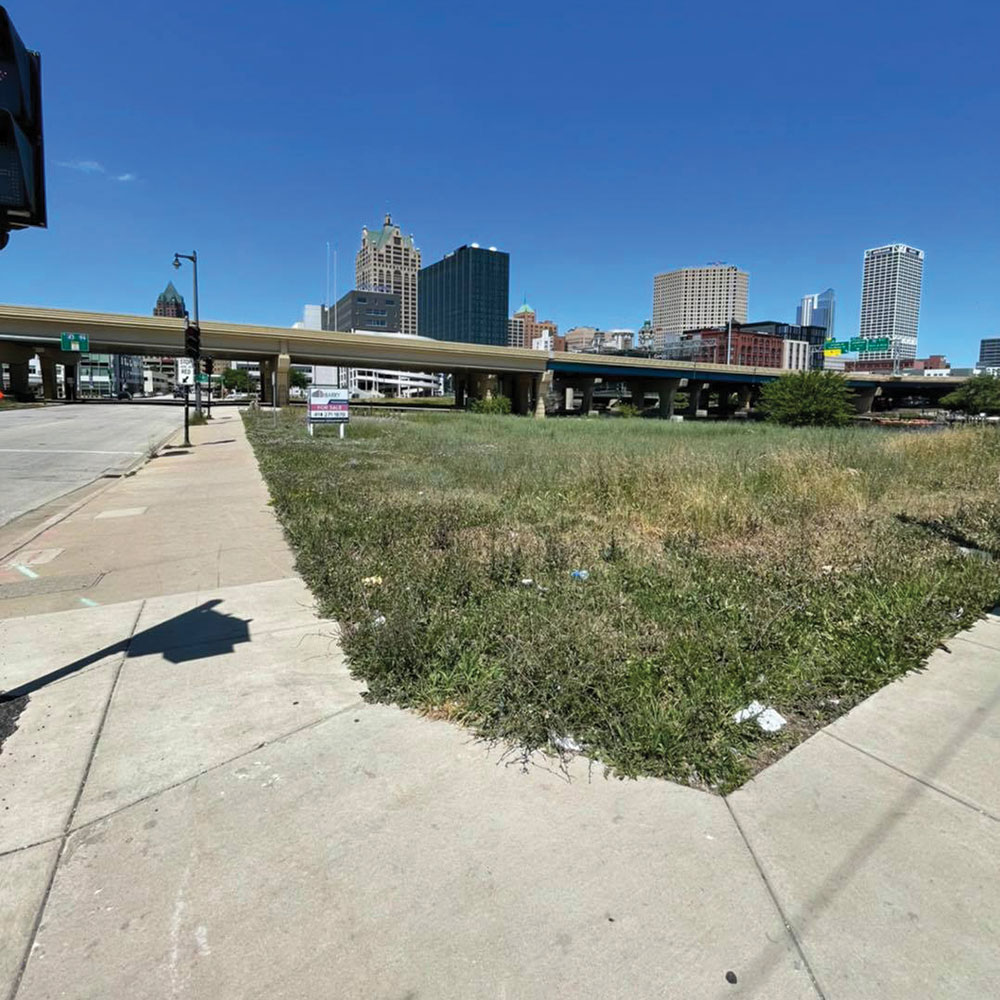Milwaukee, WI – With the unanimous support of the Milwaukee Common Council, the Milwaukee County Board of Supervisors, County Executive David Crowley and Milwaukee Mayor Tom Barrett, Thursday, August 5, 2021 has been proclaimed “Black Nite Remembrance Day” throughout Milwaukee County and the City of Milwaukee, honoring the first recorded LGBTQ uprising in Wisconsin history.
An additional proclamation, from Governor Tony Evers, is expected soon.
The Wisconsin LGBTQ History Project will host a short media event on Thursday, August 5, at the scene of the Black Nite (400 N. Plankinton Ave., at St. Paul.) Featured speakers will include Elle Halo, transgender rights activist, educator and community health champion. Additional details will be shared in a separate media advisory next week.
On Thursday night, the Hoan Bridge will be illuminated in pride colors from dusk until 2 a.m. to honor the unsung heroes of the Black Nite Brawl. All lighting costs will be covered by the Black Nite 60 fundraiser, hosted by the History Project and GoFundMe. (At press time, the fundraiser was 64% to goal.)
Unfortunately, the fundraiser failed to achieve the goal of installing a permanent historic sidewalk marker at the Black Nite site to honor the 60th anniversary.
“The Milwaukee County Historical Society denied our nomination,” said Don Schwamb, founder of the Wisconsin LGBTQ History project. “After the Milwaukee County Board intervened on July 21, we were informed that our request missed this year’s deadline and would not be considered until 2022. We were advised to ‘do more research’ and ‘get more community support.'”
The Milwaukee County Historical Society website does not list a 2021 submission deadline, nor any insight into the qualifications of the committee deciding the historical significance of LGBTQ culture or community. At present, there is not a single landmark in Milwaukee County honoring an LGBTQ person.
“The Black Nite demonstrates why commemoration is so important,” said Schwamb. “LGBTQ history is not taught in Wisconsin schools. Until LGBTQ life experiences are fairly reflected in public museums, exhibits and landmarks, they will constantly run this risk of being lost to time.”
Preserving our past, anchoring our future
Brice Smith, Phd, is the author of Lou Sullivan: Daring To Be A Man Among Men. Dr. Smith also served as coordinator of the Milwaukee Transgender Oral History Project, where Josie’s account of the Black Nite Brawl was first recorded in 2011.
Dr. Smith shared this statement:
“Thanks to the efforts of the Wisconsin LGBTQ History Project, this seminal event in our community’s history has been reclaimed from storytelling lore. For more than 50 years, Josie Carter was encouraged time and again to recount the night she fought off homophobic instigators and led her queer bar-mates in defending one of the few city spaces where they were free to be.”
“Unlike the Stonewall and Compton’s Cafeteria riots, the Black Nite Brawl did not pit queer and trans people of color against the police. When the paddy wagon showed up, Milwaukee police stood with their friend Josie on the right side of history, rounding up the queer community’s attackers.”
“But Milwaukee’s never been like New York and San Francisco. And as we know, that’s a good thing. Where would the LGBTQ movement be today without our Midwestern heroes? Heroes like Josie Carter who showed us that making friends is as important as battling enemies. Heroes like Eldon Murray who didn’t just demand rights, but rather attained them through hard work and good sense. Heroes like Lou Sullivan who dedicated their lives to helping others like them.”
“Josie Carter was a legend while she lived, leaving her mark on all of us blessed to know her. Like Josie, the Black Nite is gone. But the brawl that occurred there on August 5th, 1961 and the classy lady who started it continue to inspire us to this day.”
“I love the idea of an historical marker to commemorate the event. Something to tangibly mark the bravery, love and resilience of these elders. A little space claimed in the city that was home during a time that didn’t want them. A sign to all Milwaukeeans of how rich our history is and how inclusive we are.”
“Amidst all the official proclamations, I humbly submit my own: Whereas the Black Nite Brawl was a significant historical event to the city of Milwaukee and its LGBTQ community, it should forevermore be written into our local history and commemorated with an historical marker. I will do my part to make this happen and invite you to do the same.”
About the Black Nite Brawl
On August 5, 1961, a young black transgender woman summoned the bravery, courage and righteousness to fight back against homophobic violence that invaded one of her community’s only safe spaces, the Black Nite (400 N. Plankinton Ave.) She knew her very existence was criminal, her actions could have extreme social and legal consequences, and she may even be killed. But Josie Carter did not run from a fight.
With violence on the doorstep, she beckoned to her community to stop running and start fighting back — inspiring something they’d never felt before — a sense of pride in themselves and each other. As they defended their space and themselves against a violent invasion, they felt part of a community for the first time.
“On the great game board of local LGBTQ history, all the dominoes lead back to the Black Nite,” said Schwamb. “Nothing was ever quite the same again after that night.” The Black Nite Brawl, as it became known, triggered a timeline of massive cultural change in Milwaukee. News coverage of the Black Nite continued for over a week, revealing to isolated LGBTQ people that they were not alone in the world. As people found their community, they began to demand liberation. Some of the earliest gay rights activists, including Eldon Murray and Alyn Hess, cited the Black Nite Brawl as an early glimmer of hope and a spark of revolution. Enterprising business owners began to open more and more bars catering to LGBTQ people, including some of whom identified as LGBTQ themselves. By 1969, over three dozen gay bars had opened in Milwaukee.
The Black Nite was not one of them. The bar was forced to close, the block was deliberately demolished to disperse the gay neighborhood that had been thriving since 1949, the first generation inspired by these events was almost entirely lost to AIDS, and eventually, the Black Nite was remembered only by an ever-shrinking group of aging survivors. If not for the combined efforts of Dr. Brice Smith and the History Project, these events could have been forgotten entirely.
Josie passed away in 2014, never accepting or receiving any formal recognition for her pivotal role in changing Wisconsin LGBTQ history. She was survived by one son, and countless other “children” she’d informally adopted, coached and mentored over the years after their own families had rejected them due to their gender or sexual identities.
For more about the Black Nite Brawl, visit OnMilwaukee and National Public Radio.



























0 Comments